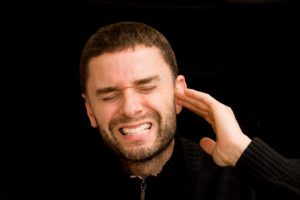Are You Grinding Your Teeth at Night?
- Posted on: Feb 15 2018
 Stress affects different people in different ways. Some people internalize it and grind their teeth while they sleep. Often they don’t know they’re doing so, although symptoms the next day tell the tale. This may simply be teeth grinding, otherwise known as bruxism, or it may be signs of a larger issue with the temporomandibular joint disorder (TMJ). Dr. Walk is experienced with these situations and can put an end to the teeth grinding and corresponding pain it creates.
Stress affects different people in different ways. Some people internalize it and grind their teeth while they sleep. Often they don’t know they’re doing so, although symptoms the next day tell the tale. This may simply be teeth grinding, otherwise known as bruxism, or it may be signs of a larger issue with the temporomandibular joint disorder (TMJ). Dr. Walk is experienced with these situations and can put an end to the teeth grinding and corresponding pain it creates.
What are the symptoms of bruxism and possible TMJ?
When we clench our teeth, this puts pressure on the muscles, tissues, and other structures around the jaw. The question is whether the alignment of your bite is to blame, or is it just a temporary case of stress and anxiety. Bruxism can be severe, leading to broken veneers, fractured teeth, worn down teeth, and other issues. This, however, doesn’t necessarily mean your symptoms are caused by jaw alignment problems. If you have these symptoms, your bruxism is probably related to TMJ:
- Enlarged facial muscles (masseter and temporalis, especially)
- Earaches
- Headaches
- Jaw pain
- Muscle tenderness in the morning
- Hot, cold, or sweet sensitivity in the teeth
- Tinnitus (ringing ears)
- Facial and neck pain
How you can help your TMJ
There are ways you can alleviate some of the causes behind your TMJ:
- Avoid chewing gum
- Avoid eating hard foods or foods that demand heavy chewing
- Drink plenty of water
- Get plenty of sleep
- Massage the muscles of the neck, shoulders, and face
- Relax your face and jaw muscles throughout the day
- Try and reduce your stressors
- Practice relaxation techniques
Two ways Dr. Walk can help
Dr. Walk has found great success using Botox injections to stem the grinding and clenching with TMJ. Although you may know Botox for its wrinkle relaxing fame when injected this neuromodulator simply causes a muscle to stop contracting for a few months. This helps enormously with TMJ.
Dr. Walk can also get you into a mouth guard. There are dozens to choose from, so he’ll help you find the right one. A mouth guard places your jaw into the proper alignment while you sleep, and it protects your teeth from damage.
Do you think you’re grinding your teeth or have TMJ? Call us at Cosmetic Dentistry Center, (617) 965-7673, and set up a consultation with Dr. Walk.
Posted in: TMJ
